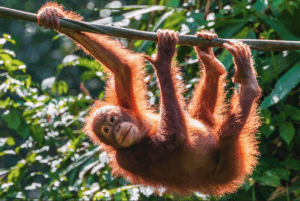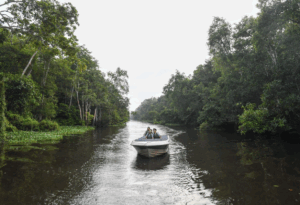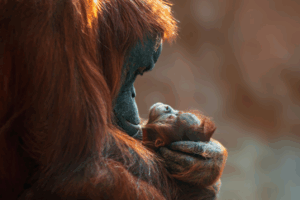KUALA LUMPUR, Malaysia — UNESCO has officially recognized Malaysia’s Forest Research Institute Malaysia (FRIM) and the Kinabatangan Biosphere Reserve as World Heritage Sites, and the nation’s breakfast culture as an item of Intangible Cultural Heritage, underscoring Malaysia’s commitment to sustainability, biodiversity, and cultural preservation.
A Forest Reborn: FRIM’s Legacy of Restoration and Research
Located just 16 kilometers northwest of Kuala Lumpur, the Forest Research Institute Malaysia (FRIM) stands as a global model for ecological restoration. Once barren land scarred by tin mining in the 1920s, the 545-hectare site in Kepong has been transformed into a thriving tropical rainforest. This visionary project, decades ahead of its time, now integrates research centers, residential quarters, water bodies, and a network of hiking trails.
As one of the world’s leading institutions for tropical forestry, FRIM sets benchmarks in reforestation, biodiversity research, and sustainable land management. Beyond its scientific significance, it has become a popular destination for nature lovers and eco-tourists. Visitors can explore arboretums, herbal gardens, and guided educational trails tracing the evolution from degraded land to dense forest. The “Forest Skywalk,” a 50-meter-high canopy walkway, offers panoramic views of Kuala Lumpur’s skyline and the surrounding greenery.
Each year, from June to September, visitors witness a unique natural spectacle — durian season. The air fills with the scent of Malaysia’s iconic fruit as the forest comes alive with insects, birds, macaques, and giant squirrels.
With its inclusion on the UNESCO World Heritage list in July 2025, FRIM joins the ranks of the world’s most important natural landmarks — recognized as a symbol of Malaysia’s long-term commitment to research, sustainability, and conservation.
The Kinabatangan Biosphere Reserve: A Living Sanctuary
In East Sabah, UNESCO has designated the Kinabatangan Biosphere Reserve, highlighting the extraordinary ecological wealth of Malaysia’s second-longest river. Stretching more than 560 kilometers from the highlands to the Sulu Sea, the Kinabatangan River meanders through one of the most biodiverse ecosystems on Earth. It is home to endemic species such as the Bornean orangutan, proboscis monkey, macaques, and the pygmy elephant — making it one of only two places in Asia hosting ten primate species.
The biosphere reserve will serve as a learning hub for sustainable development, where research, conservation, and community-based initiatives intersect. The goal: to balance biodiversity preservation with the sustainable use of natural resources.
Visitors can experience the pristine landscape on early morning or evening river cruises, where over 200 bird species — including all eight hornbill species native to Borneo — make the region a paradise for birdwatchers and wildlife photographers alike.
UNESCO’s recognition of the Kinabatangan Biosphere Reserve reinforces Malaysia’s global reputation for environmental stewardship and positions the nation as a leader in conservation-driven tourism.
A Taste of Heritage: Malaysia’s Breakfast Culture Recognized
Malaysia’s newest intangible cultural heritage listing celebrates something closer to home — its breakfast culture.
More than a morning meal, breakfast in Malaysia is a reflection of the nation’s multicultural fabric and culinary joy. From bustling street stalls to open-air hawker centers, mornings bring together Malaysians from all walks of life.
At the heart of this culture is Nasi Lemak, the national dish: fragrant rice cooked in coconut milk and pandan leaves, served with spicy sambal, crispy anchovies, roasted peanuts, boiled egg, and cucumber — often complemented with fried chicken, squid, or beef rendang.
Equally beloved is Roti Canai, a flaky, layered flatbread of Indian origin, folded and fried in ghee until golden and crisp, traditionally paired with dhal or spicy curries.
And no Malaysian breakfast is complete without Teh Tarik, literally “pulled tea” — black tea mixed with condensed milk and skillfully poured between two cups to create its signature froth and velvety texture. The preparation is both performance and ritual, embodying Malaysia’s warmth and hospitality.
Global and Domestic Reactions
Environmental groups and cultural organizations across the world have applauded UNESCO’s recognition.
The World Wide Fund for Nature (WWF) hailed the inclusion of the Kinabatangan Biosphere Reserve as “a crucial step in securing one of Southeast Asia’s richest ecological corridors.” Malaysia’s Ministry of Natural Resources and Environmental Sustainability called the listings “a milestone in the nation’s journey toward sustainable coexistence between nature and development.”
Local conservationists, including researchers from FRIM, emphasized that global attention will boost funding and awareness for ongoing restoration and community-based conservation projects. Meanwhile, Malaysia’s tourism sector has welcomed the news, expecting a rise in eco-tourism and culinary tourism — particularly among travelers seeking authentic, sustainable experiences.
A Nation Rooted in the Future
From the regenerated forests of FRIM to the vibrant biodiversity of Kinabatangan and the shared joy of breakfast tables across the nation, Malaysia’s new UNESCO recognitions tell a singular story: a nation preserving its roots while embracing the future — one forest, one river, and one meal at a time. (zai)
Photos: Malaysia Tourism





